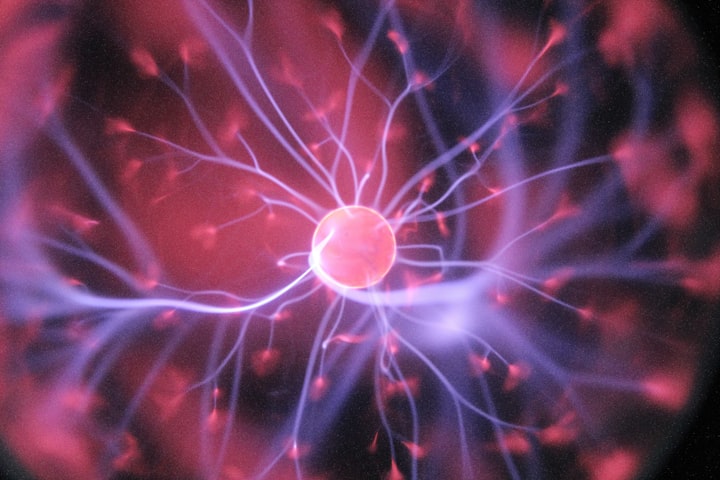If You Understand How the Brain Works, Life Becomes Easy
Do you know how your brain works?

Life, this tumult, this wonderful gift ... and the way we understand what we receive with it…
We live in a time when society is suffering from an acute lack of understanding, lack of tolerance and respect, nervousness, more and more depressions.
Many people seem to wear tattoos on their faces full of emotional trauma. At the slightest negative stimulus, we can see them reacting quickly and vehemently.
It is enough to "look" at the relationships of those around us, to pay attention to those on the street, to those in the means of transport, to those present at certain meetings, conferences, shows, workshops and we can record a lot of scenes that express theatricality, aggression, malice, selfishness, envy, cowardice, hardening of the soul.
Some let go of the emotions that surround them, others who consider themselves more evolved put everything, finely, under the rug, under the mask of an evolved being, trying to fool those around them, including themselves, and others, who realize that they are wrong. , he analyzes himself lucidly to find out where the mistake is so as not to repeat it.
If you understand how the brain works, life becomes easy
Beyond all these less pleasant manifestations, we find the explanation in the functioning of the brain. I invite you to understand why we react without thinking, without taking into account the consequences of our reactions:
The composition and functioning of the brain
The big brain has 3 components:
- brainstem
- limbic system
- neocortex.
The brainstem already exists in animals that lived 450 million years ago. The literature sometimes uses the term "reptilian brain" to describe this part of our brain that makes us very similar in reaction to our ancestors.
The reptilian brain is tasked with maintaining vital processes, protecting our safety as individuals, and perpetuating the species. In crisis situations, it triggers the "alarm signal" meant to protect our lives.
This reaction of the archaic brain occurs automatically in moments of physical or emotional insecurity, deprivation of food, lack of sleep, prolonged deprivation of comfort or sensory information, contact with the new, physical or emotional pain, obstruction of the exercise of vital functions.
Also at the level of the archaic brain is generated the mechanism of aggression or withdrawal ("fight or flight") characteristic of animals and humans in extreme situations.
The limbic system (paleocortex, also called the "visceral brain") is considered the physiological center of emotions and is responsible, among other things, for the emotional color (joy-suffering) of our perceptions.
At this level, situations and events are labeled as pleasant or unpleasant and subsequently wanted or rejected.
The limbic system plays a very important role in processing the information that actually reaches our consciousness, which we select according to criteria such as:
- inciting-boring,
- pleasant-unpleasant,
- new-repetitive, etc.
Often, the limbic system actually adjusts to reality, preventing us from noticing certain aspects, which it considers uninteresting or on the contrary traumatic.
Extraordinarily intense emotions cause a reaction of the limbic system that blocks any intervention of the cortical area. One of the favorite concerns of the limbic system is to make us run after pleasure and avoid pain at all costs.
The cerebral cortex (neocortex) is the newest formation of the human brain (only 1.5 million years old) and its very pronounced development is the distinguishing feature of homo sapiens.
It can also be called the "thinking brain" because at this level man becomes capable of abstract thinking, language, operation with symbols, ethical and moral considerations.
The way in which the three segments of the brain relate to each other is extremely important for the one who wants to evolve, to aspire to God. Esoteric treatises often speak of the need to control the animal part of us in order for all divine qualities to flourish.
This is not just a metaphor but has a physiological correspondence referring to the relationships that are established between the neocortex and the archaic brain (brainstem).
The researchers concluded that for most individuals, the neocortex only works properly when the basic needs of the reptilian brain are met. In the case of counting, the archaic brain completely alters or even blocks the rational projects of the thinking brain, and the man simply enters the "autopilot".
In times of crisis, the archaic brain is able to generate extremely fast and affective reactions to save our lives, much better than the thinking brain could. Instead, in our manifestation as rational beings, the same mechanism causes all the lower reactions that are so spontaneous and rapid that sometimes we get completely out of control.
History knows a famous case of this kind: St. Peter who "before dawn" denied Jesus three times.
There is another aspect. In animals, the alarm system is usually triggered only by biological factors, so for them, this mechanism works properly. In the case of the human being, the psychological factor intervenes, which can sometimes greatly disrupt the security activity of the reptilian brain.
That's why in some people this security mechanism becomes so sensitive that it behaves like an alarm that goes off not only when a thief wants to open the door, but also when a cat passes by on the street when a sparrow flies over it or even when a fly buzzes nearby. Such an alarm then becomes a very disturbing factor.
How can control of the archaic brain be taken over?
Certainly not by force, as it is endowed with all the qualities necessary for an animal to survive in the wild. Quickly detects any threat, attacks or escapes finds solutions that often go unnoticed by the thinking brain.
In addition, it has a formidable weapon: biochemical control over the body. When the archaic brain triggers the "alarm signal" in the brain, extensive biochemical changes occur, accompanied by the release of specific hormones in the body.
The main activated hormones are adrenaline, noradrenaline, and corticosteroid hormones. In a short time, they invade the body and produce real inner earthquakes.
The pulse is accelerated, the muscles are intensely irrigated, the reserves of lipids and carbohydrates are mobilized, the internal organs and the skin are less irrigated with blood, the digestion is blocked, the sexual functions are inhibited. When the body is besieged by corticosteroid hormones, the thinking brain's ability to take control is almost nil.
Do you remember the last very intense negative emotion that upset you?
For example, fear or despair? You know the symptoms: your knees soften, your hands tremble, your muscles tense spasmodically, your stomach tightens, your vision is partially dark, and your mind is incoherent. Imagine trying to do something simple in this state.
Hard... hey how could you cope with other complex actions that require a perfect correlation of body and mind?
Once released into the body, corticosteroid hormones are very difficult to metabolize. Researchers have found that every emotional trauma we go through leaves real biochemical scars in the body, which heals very slowly and even tends to reactivate periodically.
And yet, what can we do to control negative emotions, to bring harmony to ourselves and our relationships?
Love is one of the main means by which the reaction of the reptilian brain can be controlled. Out of love, we do many things that would otherwise seem difficult, boring.
Out of love, we sacrifice comfort, well-being, security, sometimes even life. In the face of immense love, the lower reactions of the archaic brain are effectively pulverized.
Awareness is another extremely important element because it maintains the contact between the thinking brain and the concrete situation we are in. In the absence of awareness, the archaic brain will quickly take over and then we enter "autopilot".
Most people become semi-conscious when they are in a crisis situation, precisely because the limbic system is blocking the flow of information and unpleasant sensations.
Acceptance is of real use to us when the negative emotion is triggered and the body is already invaded by stress hormones. This is the exact attitude that produces an acute defense-aggression reaction of the archaic brain.
Let us be as aware as possible of our body and our emotions, let us not blame others for our suffering, because in this way we strengthen the position of aggression-withdrawal of the archaic brain, increasing the portion of negative hormones that we just administer.
Let us pay close attention to the echoes that our poor condition will have in the near future and avoid feeding them by recalling again and again what happened.
Negative emotions are very difficult to control if we do not take into account the mechanism by which a psychological problem generates a physiological one, and this, in turn, feeds the initial one.
It is important to be aware that violence, cowardice, attachments, aversion to pain, the need for security, the instinct to preserve are deeply ingrained somewhere in our brain cells. If we ignore them, sooner or later we will pay the price.
Victory over the archaic brain is not final until the state of spiritual liberation has been reached. Until then, no matter how many successes we have achieved in this direction, physiologically speaking, we are able to get angry, to be scared, to attack.
The real stage of our spiritual evolution is confirmed by the degree to which we are able to know and master the reactions of the archaic brain.
The solution is the constant attention full of lucidity given to all our reactions starting from germs… and maybe now, when we find out how our brain and our loved ones work, maybe we will be more tolerant, more sincere, more patient, more open, more loving.
And if none of this works, there are definitely some traumas that you can't heal on your own. You need a specialist.





Comments
There are no comments for this story
Be the first to respond and start the conversation.